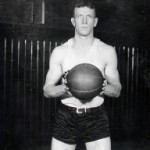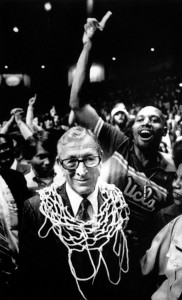In English, we call it Thanksgiving. (In Canada, it’s generally the second Monday in October. Hope yours was happy. My American friends will have to wait a while for their gobble-fest, but maybe this will give you some early appetite for thinking.)
ThanksGIVING. Give thanks and then give whatever else you can. I like that the word action appears in the French name of this wonderful excuse for a long weekend, and so I made it my title. This is clearly my favourite generally celebrated holiday of the year. (Nothing beats Naw-Ruz.) It’s all about the verbs. It’s all about gratitude being something that we actively DO, and not only feel.
Live life with an attitude of gratitude. This clunky little rhyme has become a popular motto of how to live well, and it’s a good one. (The Globe and Mail’s Judith Timson called it the “platitude of gratitude” — it may have been Anthony Robbins who originated or popularized the expression — but went on in her column last weekend to show how this admitted cliché is important to health and contentment.) For the last ten years or so, the Howden Thanksgiving shindig has featured not only turkey, Chris’s broccoli casserole, and the food-like, cottage-cheese-and-jello collision we call Pink Stuff, but also a thankfulness circle. Everyone offers a few words. Some offer a few more, not that my brother was counting or anything. It gets sweeter every year, it seems.
Over and over, we were thankful for faith and caring, for friends and community and for family, behind and beneath and above all. Our numbers and our general harmony suggest that we’re a fortunate crew. What follows is no transcript, but offers some of the ways my family circle raised its many voices in gratitude…
…for all my memories of the example of my parents
…for the richness of opportunity that we enjoy in our fortunate nation
…for the strength and support of my brothers
…for the chance to get to work and laugh and just hang out with my sisters
…for my sons, who have taught me to be a better Dad
…to my wife, who teaches me to be a better person
…that people are more environmentally responsible for this beautiful planet
…for sports ‘cause I really like sports
…for memorizing scripture verses and for music
…to be in love with my husband/wife
…for my job, and for my BOSS who’s a really cool guy
…to my parents for teaching me right from wrong
…for going to the rink, where the parents know and care for each other
…for the unconditional love – and the occasional indifference! – of pets
…for my time living in a different culture in the Arctic, a place I’ll return to
…for good times in the kitchen
…for another year at school
…for the chance to keep on learning and trying new things
…for having friends in their 90s, friends in their teens, and everything in between
…for the ability to always “go home in my heart” …that I live in a family where we take advantage of each other (in a good way!)
A poet wrote: i thank you god for most this amazing / day: for the leaping greenly spirits of trees / and a blue true dream of sky; and for everything / which is natural which is infinite which is yes… I’m grateful for this beginning to an odd sweet sonnet from e.e. cummings, one that I recited when a second marriage opened up the windows on a stuffy life. I’m glad to have, touch wood, overcome the ankle pain that had made even the simplest act of near-athleticism seem like a pole vault with no pole; my Thanksgiving run was a 10-k canter along leafy, mist-laden country roads. I’m blessed by the lives and affections of my bride and boys, whose movements inspire and inform my own. One week after I failed to mention UNESCO’s World Teachers’ Day, I am ever more grateful for all who have taught me. And for words, of course, and especially for words like these of ‘Abdu’l-Bahá, a good start to any old day (or a New one!): O compassionate God! Thanks be to Thee for Thou hast awakened and made me conscious. Thou hast given me a seeing eye and favoured me with a hearing ear…
An old-fashioned definition of a gentleman says that he goes out of his way to make others comfortable. This is loving kindness, really, and all of us can do it. Love is not a feeling, I was once taught, but an action, doing for others what they most need (and as we would be done by). Feeling gratitude, it says here, is doing for ourselves what is best for us. And then we can go beyond feeling and give back, an action that testifies to our own good fortune and spreads it around. Thanksgiving is a brief festival, but it should infect our whole year. There is a lot of gratitude to be done. Action de Grâce, indeed.



